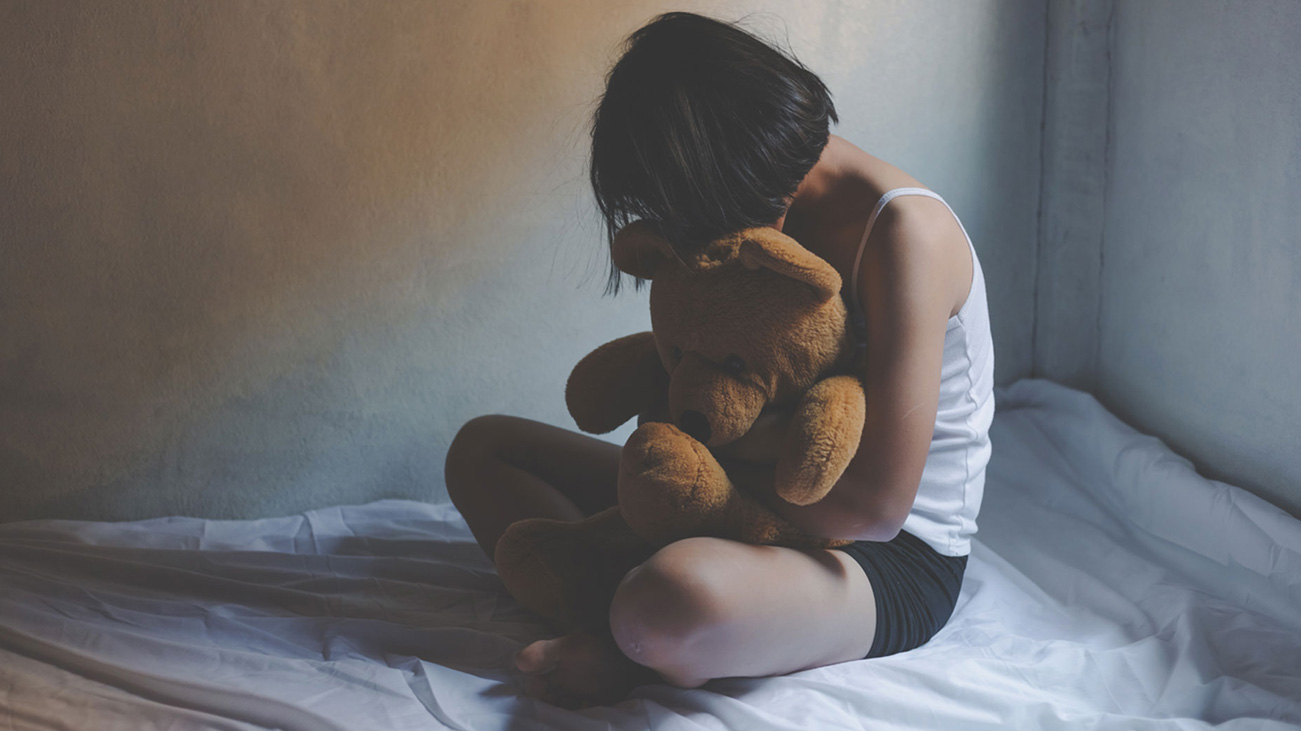The Urgent Need for Improved Child Protection Amidst COVID-19

4 REASONS WHY WE MUST DO MORE TO PROTECT CHILDREN FROM EXPLOITATION AND ABUSE DURING AND AFTER THE PANDEMIC
The consequences of the COVID-19 global pandemic for children cannot be underestimated. According to the WHO, the world’s most vulnerable children, ‘including refugees, migrants, and children who are internally displaced, deprived of liberty, living without parental care, living on the street and in urban slums, with disabilities, and living in conflict-affected areas’ are at a particularly high risk.
Past public health emergencies, such as the Ebola outbreak across West Africa in 2014-16, have seen spikes of child labour, neglect, sexual abuse and teenage pregnancies recorded (UNICEF). To ensure that children are protected against such risks in this global pandemic, it is urgent that governments, public institutions and private companies prioritise the protection of children and strengthen child protection laws, policies and practices.
Areas of concern and where children are at risk include online activity, economic insecurity of parents and guardians, and abusive home environments.
1. ONLINE RISKS
The COVID-19 pandemic lockdown has left millions of people throughout the world increasingly dependent on the internet for entertainment, information and social contact. For many children, online communities have become central to maintain their learning, support and play (WHO).
However, increased time spent online, particularly if unmonitored by parents or guardians, puts children more at risk of sexual exploitation and abuse. “Spending more time online may heighten the risk of grooming, predators trying to meet children and an increase of self-generated images,” Rachel Harvey, an advisor for UNICEF, told the Thomson Reuters Foundation.
Since the pandemic began and lockdown measures were implemented, law enforcement and hotlines in many countries have reported increase in internet-based child sexual abuse and exploitation, such as live-streaming abuse of children and attempts to access child sexual abuse materials online (ECPAT Sweden; EUROPOL). According to InHope, a network of 47 national cybertip hotlines, reports of child sexual exploitation activity have increased by 30 percent globally (NBC News). For many offenders, the current state of the world is an opportunity to increase their attempts to exploit and abuse children on the internet (ECPAT).
2. ECONOMIC INSECURITY
With leading economists predicting loss of employment and reduction in income, there is a real threat of child abuse and exploitation to include child labour, child marriage, child trafficking and the sale of children for sexual exploitation, as families struggle to make ends meet. Children who live in remote, rural areas and in refugee settings are at especially high risk of being victimised, and children from marginalised communities are more likely to be targeted by offenders (ECPAT).
A worsening economic situation can lead to the exploitation of children within the home. A spike in exploitation may come, organisations in Southeast Asia have warned, particularly in the countries where the issue is already extensive such as the Philippines, for example (Thomson Reuters Foundation). As families lose income, increased numbers may subject their children to abuse in ‘live streaming shows’ where offenders all over the world pay to watch. The occurrence of live-streamed abuse may also increase as offenders are restricted from travelling during the pandemic and are therefore unable to exploit children in person.
3. ABUSIVE HOME ENVIRONMENTS
COVID-19 has also put children at risk of abuse through forced confinement within their own homes, where they may experience or observe physical, psychological or sexual abuse.
Particularly at risk are children already living in homes where violence regularly occurs or within dysfunctional family situations. Indeed, violence within the family may be exacerbated by the high levels of stress and anxiety being experienced during the pandemic. Coupled with economic struggles, isolation, overcrowding and forced confinement within a house, children can be at a heightened risk of abuse (WHO).
In the UK, for example, the largest domestic abuse charity, Refuge, has reported a 700 percent increase in calls to its helpline in a single day during the COVID-19 lockdown (The Guardian). In the US, the National Sexual Assault Hotline has experienced a 22 percent increase in monthly calls from children under 18 years old.
4. NEW FORMS OF ABUSE
Alongside the new ways of living that people around the world have had to adapt to because of the COVID-19 crisis, offenders have found new ways of abusing and exploiting children. One shocking example of this adaptation is in Brazil, where law enforcement report that offenders’ inability to travel to and frequent the usual places where they abuse children has led to attempts being made to establish a ‘delivery’ or ‘drive thru’ service to facilitate the child sexual exploitation (ECPAT).
HOW TO RESPOND
We must act now. Together, we can make a difference to the lives of children all over the world. To protect children from exploitation and abuse in the wake of COVID-19 and mitigate the heightened risks posed to them, there are several steps we can take.
INDIVIDUALS:
- KNOW THE SIGNS – We must become aware of the signs of abuse and exploitation. For a full list of the signs to look out for, please visit www.itsapenalty.org/knowthesigns.
- LEARN TO REPORT – To fully protect victims, we must know how to report a suspected case of exploitation, abuse or trafficking. It’s a Penalty’s interactive world map shows how to report such crimes in every country worldwide, www.itsapenalty.org/makeareport.
- PROTECT CHILDREN AND TEENAGERS WHEN ONLINE – Leaving children and teenagers to be completely unmonitored on the internet can leave them vulnerable to abuse. End VIolence Against Children have shared a comprehensive list of resources on how to keep children safe online during this time: https://www.end-violence.org/safeonlinecovid.
COMPANIES
- Companies, particularly technology and telecoms providers, must now do all they can to protect children from abuse and exploitation, and implement measures to keep children safe online and in person.
- The UN’s International Telecommunication Union’s new Global Network Resiliency Platform (#REG4COVID) is a place for regulators, government authorities and industry to share and pool experiences, ongoing initiatives and innovative policy and regulatory measures designed to help ensure communities (and children) remain connected (WHO). Become a part of the network here: https://reg4covid.itu.int/.
- The prioritisation of child protection must be present within companies’ Corporate Social Responsibility (CSR) programmes, and companies should support organisations working to end abuse, exploitation and trafficking as part of their CSR.
GOVERNMENTS
- Governments must ensure that the protection of all children is of primary importance in their disease control policies.
- Financial and material assistance must be provided to limit the economic impact on families whose incomes have been impacted by the crisis.
- Governments must facilitate the training of staff in education, health and child services on the risks posed to children as a result of COVID-19, particularly with regards to sexual exploitation and abuse and how to swiftly report any concerns.
- Governments must dedicate resources to policing and law enforcement in order to protect children during and after the pandemic.
- Governments should review child protection legislation in order to ensure children are fully legally protected against child sexual exploitation and abuse. More information about our legal reform programme which strives to assist Commonwealth governments in achieving this goal can be found here: https://itsapenalty.org/advocacy/.
IT’S A PENALTY
The work of It’s a Penalty, alongside other organisations, to prevent these crimes and protect victims has never been more vital. The protection of children from exploitation and abuse is at the heart of everything we do.
We are continuing to raise awareness and educate about abuse, exploitation and trafficking and share essential resources with thousands on social media, including specialised content to share information about these issues in the context of COVID-19. Our global human trafficking prevention campaigns will continue to educate, equip and encourage the public to stand up against these heinous violations of human rights.
Our advocacy work also continues. We believe that comprehensive legislation is the crucial foundation upon which all child protection efforts must be placed. To deliver this vision, our advocacy work targets legal reform within the Commonwealth to ensure that children cannot be abused with impunity.
To stay up to date with our work, please follow us on social media and subscribe to our mailing list to receive our informative newsletters.
